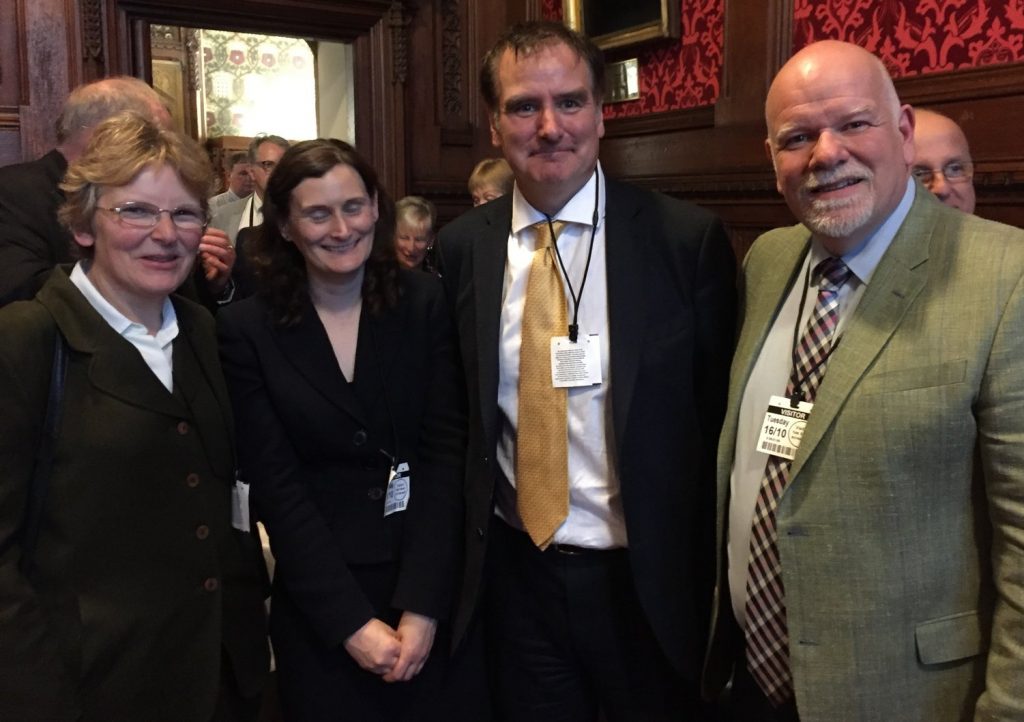
On the 16th October 2018, City-REDI and Rose Regeneration presented their research at the Parliamentary Launch of the National Centre for Rural Health and Care. The two organisations were commissioned by Jan Sobieraj, Chief Executive of the United Lincolnshire Hospitals Trust to undertake work over the summer looking into rural workforce issues in health and care as part of establishing a National Centre for Rural Health and Care (NCRHC). The research had two aims:
- To conduct research into issues highlighted the NHS Workforce Strategy Consultation Facing the Facts, Shaping the Future.
- To distil good practice in rural workforce commissioning and provide suggestions as to how this can be applied across the NHS and in relation to adult social care.
The research team included Professor Anne Green and George Bramley at City-REDI and Ivan Annibal and Jessica Sellick, Rose Regeneration. City-REDI was involved because of Anne’s deep understanding of skills and employment markets and George had just joined from the Institute of Applied Health Research and brought the experience of health service redesign and the evaluation of medical technologies. We looked at the Office for National Statistics Rural-Urban Classification and the map of NHS delivery in England and analysed workforce statistics using this framework and analysed selected socio-demographic, economic and labour market data. Our evidence review addressing key questions pertinent to rural workforce issues on health and care highlighted a lack of evidence on rural dimensions of the health and care workforce. Interviews and workshops were conducted with stakeholders that provided insights into specific perspectives on challenges and opportunities faced by rural areas, and also provided examples of good practice. Anne provided an overview of the study’s finding at the Parliamentary Launch of the National Centre for Rural Health and Care on 16th October 2018 and study report is available on the National Centre for Rural Health and Care website.
Key findings of our research included:
- A rural component is lacking in workforce planning in health and care. This means that rural disadvantage is not acknowledged.
- Sparser and smaller populations, higher employment rates, lower unemployment rates, an older population, and relatively fewer younger people pose challenges for recruitment, retention and workforce development in rural areas.
- Despite having common features rural areas are diverse. ‘Place Matters’ for healthy life expectancy. It also means that workforce planning needs to be sensitivity to local circumstances.
- There are examples of good practice and there has been innovation in rural areas, yet there has been no detailed mapping of programmes and funding streams, or an analysis of the extent to which they have supported innovation in workforce development in rural areas.
We identified 9 challenges and 9 opportunities for securing workforce supply in rural areas which are set out in our report.
About the National Centre for Rural Health and Care
The National Centre for Rural Health and Care has been established as a Community Interest Company, national in scope and with a Headquarters in Lincolnshire. It acts as a governance vehicle for formal collaboration amongst partners interested in four key drivers of impact in rural health and care, as well as influencing policy and strategy:
- Data – scoping and measuring the challenge and the response to it.
- Research – identifying and testing what works.
- Technology – shrinking distances between and adding to the human capacity in rural communities.
- Workforce and Learning – making the case for rural settings as the location of choice for ambitious health and care professionals.
Key activities of the Centre include:
- Horizon scanning for good practice and to predict future issues and needs.
- Brokering collaboration where innovation or good practice exists or can be stimulated.
- Supporting the development of bids for funding or specific cases for private investment.
- Supporting the piloting/testing of products and services.
- Working to scale up effective products and services.
- Evaluating the impact of products on services in addressing rural health challenges.
- Through focused dissemination and networking generating wide-scale adoption of what works.
By Anne Green, Professor of Regional Economic Development and George Bramley, Senior Analyst, City-REDI, University of Birmingham.
Disclaimer:
The views expressed in this analysis post are those of the authors and not necessarily those of City-REDI or the University of Birmingham.
To sign up for our blog mailing list, please click here.
